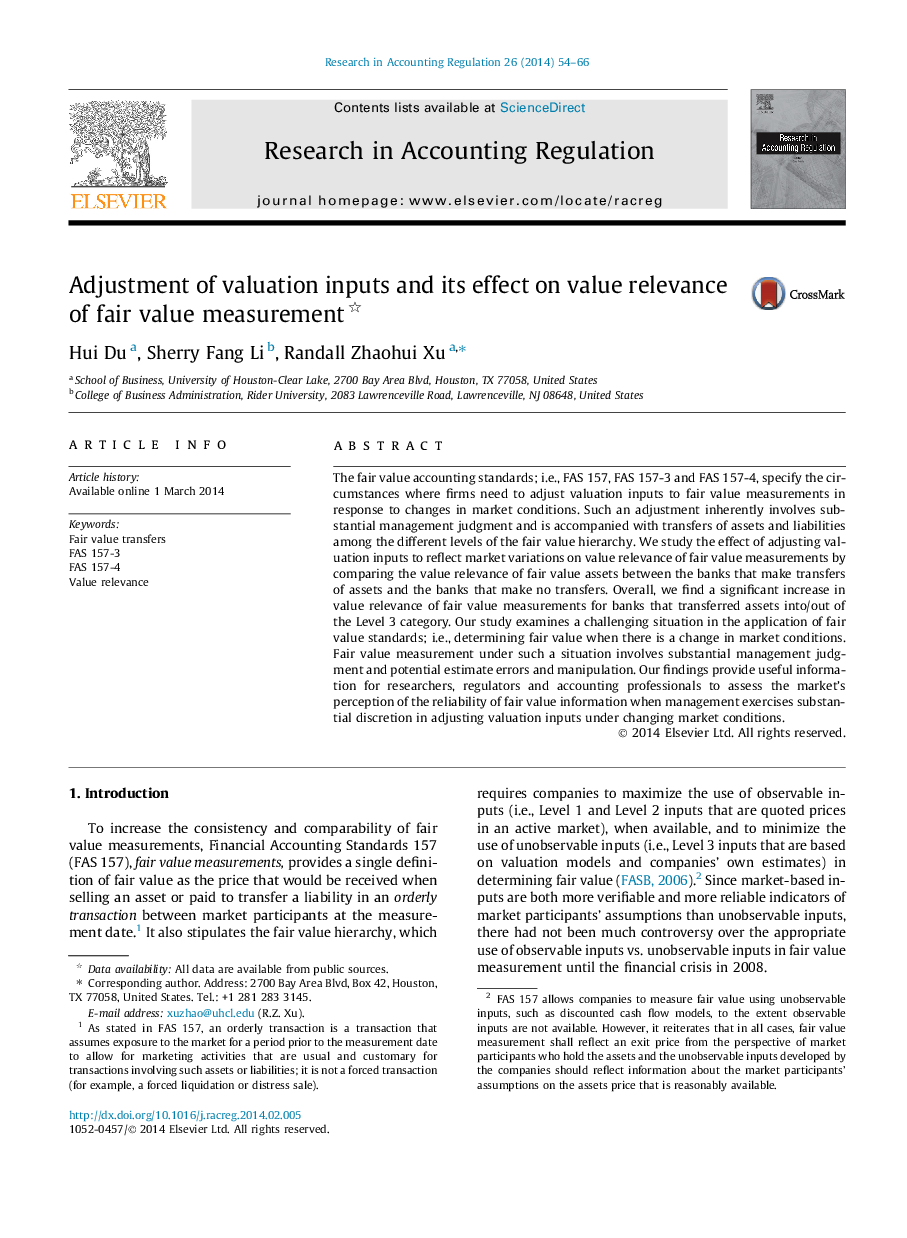| Article ID | Journal | Published Year | Pages | File Type |
|---|---|---|---|---|
| 1006668 | Research in Accounting Regulation | 2014 | 13 Pages |
The fair value accounting standards; i.e., FAS 157, FAS 157-3 and FAS 157-4, specify the circumstances where firms need to adjust valuation inputs to fair value measurements in response to changes in market conditions. Such an adjustment inherently involves substantial management judgment and is accompanied with transfers of assets and liabilities among the different levels of the fair value hierarchy. We study the effect of adjusting valuation inputs to reflect market variations on value relevance of fair value measurements by comparing the value relevance of fair value assets between the banks that make transfers of assets and the banks that make no transfers. Overall, we find a significant increase in value relevance of fair value measurements for banks that transferred assets into/out of the Level 3 category. Our study examines a challenging situation in the application of fair value standards; i.e., determining fair value when there is a change in market conditions. Fair value measurement under such a situation involves substantial management judgment and potential estimate errors and manipulation. Our findings provide useful information for researchers, regulators and accounting professionals to assess the market’s perception of the reliability of fair value information when management exercises substantial discretion in adjusting valuation inputs under changing market conditions.
